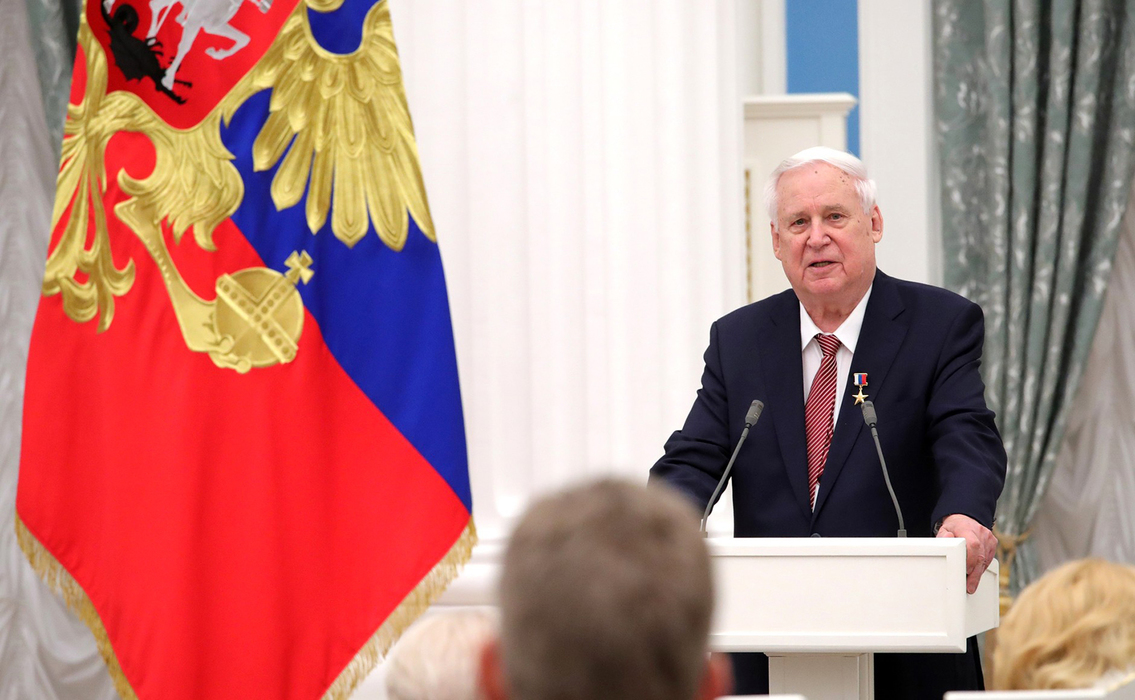The last of the “main witnesses” of perestroika died: what is Nikolai Ryzhkov remembered for?
[ad_1]
Nikolai Ryzhkov died. This is not one of those cases where death can be called untimely and unexpected: the prime minister of the perestroika era was 94 years old. Nevertheless, the loss is undoubtedly great, significant and, in its way, irreparable. Nikolai Ivanovich titled his memoirs, published 15 years ago: “The main witness. The case of the collapse of the USSR.” And now, the “main witness” in the “case”, and, in fact, the last remaining decision-maker, is no longer there. Now there is no one to clarify the details.
The biography of Nikolai Ryzhkov can be called quite typical for a representative of the highest leadership stratum of the Soviet era – well, at least that segment of his life’s path that preceded his arrival at the very top levels of power.
Born in 1929, Donbass, in the village of Dyleyevka (now part of the Artemovsky district of the DPR) – in a family of hereditary miners: both his grandfather and father worked at the mine. Nikolai Ryzhkov’s younger brother also became a miner, but he himself chose a different path. After school I entered the Kramatorsk Mechanical Engineering College. After graduation, in 1950, he went to work at Uralmash (Sverdlovsk, now Yekaterinburg).
He began his career as a workshop foreman, 20 years later, in 1970 he headed the enterprise (since 1971 – general director). Since 1975 – in Moscow: First Deputy Minister of Heavy and Transport Engineering of the USSR (1975-1979), First Deputy Chairman of the State Planning Committee (1979-1982)… Since 1981 – Member of the CPSU Central Committee.
After the death of Leonid Brezhnev, on November 22, 1982, Ryzhkov was elected secretary of the Central Committee and at the same time held the post of head of the Economic Department of the Central Committee. “Andropov introduced me to the team preparing the reforms,” he recalled in an interview. “Gorbachev and Dolgikh were also there… The situation was difficult, the crisis was ripe. We began to deal with the economy, and with this perestroika began in 1985, where the results of what was done in 83-84 were practically used. If they had not gone for it, it would have been even worse.”
Ryzhkov reached the peak of his political career after Mikhail Gorbachev came to power. In April 1985, Nikolai Ivanovich became a member of the Politburo of the Central Committee, and in September 1985 he received the post of Chairman of the Council of Ministers of the USSR, which he held for more than five years. On January 14, 1991, he was dismissed by the President of the USSR. Shortly before this, Nikolai Ivanovich suffered a massive heart attack.
“Initially, I thought of nominating Ryzhkov for the post of vice president, but even hints of this caused him grief,” Mikhail Gorbachev wrote in his memoirs. “And then he had a heart attack.” However, it seems that Ryzhkov had little chance of remaining as prime minister even without a heart attack. Disagreements between the president and the prime minister grew like a snowball.
“I saw that he was experiencing strong pressure from a powerful layer of his former colleagues in the director’s corps,” Gorbachev recalled about his former comrade-in-arms. “Nikolai Ivanovich sometimes showed hesitation and inconsistency…. I tried to keep Ryzhkov in reformist positions, and I think “In general, this was successful. But, as they say, you can’t hide a bag. It was at this time that ideas about the head of government as an adherent of conservative views gradually began to emerge in public opinion.”
In his memoirs, Ryzhkov paid his former patron in even more hard cash, accusing him of “unscrupulousness, corruption” and, of course, of the collapse of the party and the country. However, for the sake of fairness, it must be replaced that a considerable share of responsibility for what happened to the country, for the decisions made during that period, was borne by Ryzhkov himself, who, whatever one may say, being the second person in the Soviet power hierarchy, was one of the “architects of perestroika.”
Resignation from the top of power meant the end of a political career at that time. Yes, perhaps, our era in this sense is not much different from the old times. In a word, Ryzhkov’s case can be called exceptional: after retiring, he turns from a cabinet minister into a public politician – he runs for president of the RSFSR (from the CPSU) in the first popular election of the head of the republic in the history of the country.
And he lost, in principle, with dignity: he took second place, gaining 16.85 percent of the votes. In conditions of an acute economic and political crisis and free, competitive elections, for a candidate from the party in power that was rapidly losing authority, this was, in general, not such a bad result.
Ryzhkov was not “lost” in post-Soviet Russia either. In December 1995, he was elected to the State Duma and became the leader of the People’s Power parliamentary group. In 1999, he ran again and again entered the Duma. His last place of work was the Federation Council: for 20 years, from September 17, 2003 to September 25, 2023, Nikolai Ivanovich represented the executive power of the Belgorod region in the upper house of parliament.
[ad_2]
Source link









